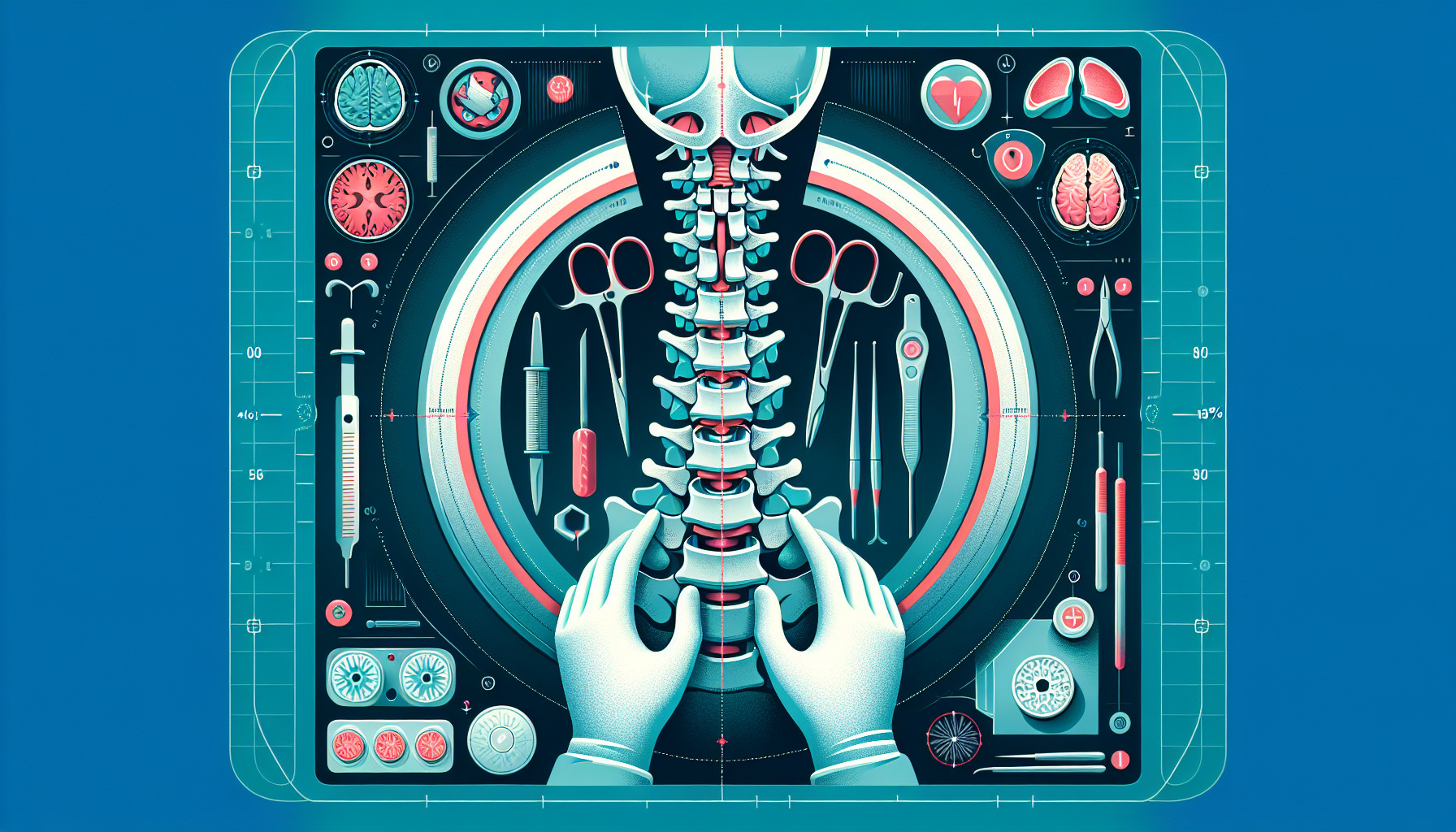Our Summary
This research aimed to examine the success rates of spinal fusion in patients with different types of spinal changes, known as modic changes (MCs). The researchers collected and analyzed data from seven studies, involving 1162 patients in total, and categorized them into four groups based on the severity of their MCs.
The results showed that early on (3 and 6 months after surgery), patients without MCs had significantly better spinal fusion rates than those with MCs. However, there was no significant difference in fusion rates between the groups after 12 months and at the final check-ups. The type of spinal fusion - cervical fusion or transforaminal lumbar interbody fusion (TLIF) - didn’t significantly affect the results. However, patients without MCs had significantly better fusion rates when a different type of spinal fusion, posterior lumbar interbody fusion (PLIF), was performed.
In conclusion, MCs can negatively affect the success rate of spinal fusion in the first 6 months after surgery. More specifically, patients with MC-2 and MC-3 had lower success rates in PLIF.
FAQs
- What are modic changes (MCs) in relation to spinal conditions?
- How do modic changes affect the success rate of spinal fusion surgeries?
- Does the type of spinal fusion - cervical fusion, transforaminal lumbar interbody fusion, or posterior lumbar interbody fusion - affect the success rate in patients with modic changes?
Doctor’s Tip
Therefore, it is important for patients with MCs to be aware of this potential impact on their fusion success and to discuss their individual risks and benefits with their doctor before undergoing spinal fusion surgery. Additionally, following post-operative care instructions and attending follow-up appointments are crucial for monitoring and optimizing the success of the fusion process.
Suitable For
Patients with modic changes (MCs) in their spine, especially those with MC-2 and MC-3, may not be ideal candidates for spinal fusion surgery. Patients without MCs or with less severe MCs may have better success rates with spinal fusion. It is important for healthcare providers to carefully assess the severity of MCs in patients before recommending spinal fusion surgery.
Timeline
Before spinal fusion:
- Patient experiences chronic back pain and other symptoms related to spinal issues.
- Patient undergoes various diagnostic tests, consultations with specialists, and conservative treatments such as physical therapy or medication.
- If conservative treatments are ineffective, the patient and their healthcare team decide to proceed with spinal fusion surgery.
After spinal fusion:
- Immediately after surgery, the patient may experience pain, swelling, and limited mobility at the surgical site.
- Over the next few weeks, the patient undergoes a period of recovery and rehabilitation, including physical therapy to regain strength and mobility.
- In the following months, the patient gradually resumes normal activities and experiences a reduction in back pain and other symptoms.
- Long-term follow-up appointments with the surgeon are scheduled to monitor the success of the fusion and address any ongoing issues or complications.
What to Ask Your Doctor
Some questions a patient should ask their doctor about spinal fusion include:
- What are the potential risks and complications associated with spinal fusion surgery?
- How long is the recovery process after spinal fusion surgery?
- What type of spinal fusion procedure is recommended for my specific condition?
- What are the expected outcomes and success rates of spinal fusion for patients with my type of spinal changes (such as modic changes)?
- Are there any alternative treatments or therapies that could be considered before opting for spinal fusion surgery?
- How long will I need to stay in the hospital after spinal fusion surgery?
- What type of post-operative care and rehabilitation will be required for a successful recovery?
- Will I need to make any lifestyle changes or modifications after spinal fusion surgery?
- How often will follow-up appointments be needed to monitor the success of the spinal fusion procedure?
- Are there any specific factors or conditions that could affect the success of spinal fusion surgery in my case?
Reference
Authors: Chen R, Zou K, Liu J, Li K, Zhou Y, Huang H, Yang F. Journal: J Clin Neurosci. 2024 Jul;125:110-119. doi: 10.1016/j.jocn.2024.05.019. Epub 2024 May 20. PMID: 38772174
